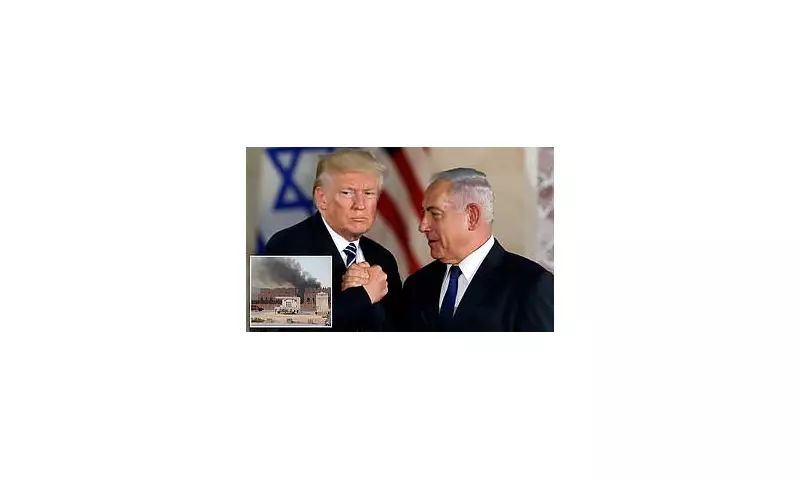
In a remarkable diplomatic broadside, former President Donald Trump has publicly excoriated Israeli Prime Minister Benjamin Netanyahu over his handling of sensitive negotiations with Qatar. The outburst, described by sources as 'furious', centres on Netanyahu's decision to thank Qatari officials for mediating ceasefire talks with Hamas—a move Trump claims jeopardised regional security.
The Bombshell Accusation
According to insider accounts, Trump accused Netanyahu of committing a 'massive strategic blunder' by openly crediting Qatar with facilitating negotiations. The former president reportedly believes this public acknowledgement has undermined Israel's security position and handed a propaganda victory to Hamas supporters.
Trump's central allegation revolves around Netanyahu's recent statement expressing gratitude to Qatar for its role in mediation efforts. The former president contends that this admission effectively endorsed Qatar's controversial relationship with Hamas, a group designated as a terrorist organisation by multiple Western nations.
A Fractured Alliance
The heated exchange reveals significant cracks in what was once considered one of international politics' most steadfast alliances. During Trump's presidency, the relationship featured mutual praise and significant policy achievements, including the Abraham Accords. This recent friction suggests substantial divergence in strategic thinking between the two leaders.
Political analysts note that Trump's criticism aligns with his longstanding scepticism toward Qatar, which he has previously accused of funding terrorism. This position often placed him at odds with other US officials who viewed Qatar as a necessary mediator in regional conflicts.
Regional Implications
The public falling-out between these two conservative leaders could have significant consequences for Middle East diplomacy. With Israel's military operations in Gaza continuing and hostage negotiations at a critical stage, the loss of coherent support from influential US figures complicates an already volatile situation.
Security experts suggest that Trump's comments might embolden critics of Qatar within Washington, potentially affecting future diplomatic engagements. The exchange also highlights the ongoing tension between private diplomacy and public posturing in complex multilateral negotiations.
Political Repercussions
The timing proves particularly awkward for Netanyahu, who faces mounting domestic pressure regarding his handling of both security matters and international relations. Criticism from a traditionally staunch ally represents another challenge for the embattled Israeli leader.
Meanwhile, Trump's comments reinforce his distinctive approach to Middle East politics, distancing himself from conventional diplomatic channels while asserting his alternative vision for regional stability. This position likely resonates with his domestic support base ahead of potential electoral campaigns.
As the situation develops, observers await responses from both Qatari officials and the current US administration regarding this unexpected public dispute between two of the right's most prominent international figures.





